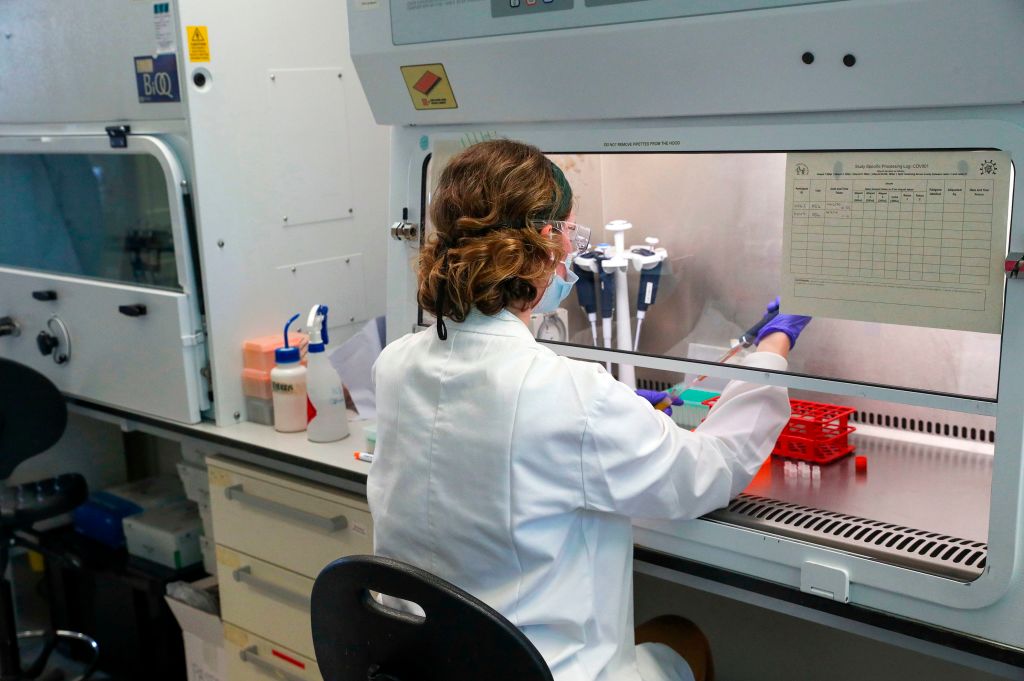It has been yet another busy medical day in our ‘new-normal’ coronavirus world. Today, the Phase One results of the University of Oxford vaccine were published, confirming positive reports tantalisingly leaked last week. Also making the news is a press release from the pharmaceutical company Synairgen, touting very positive initial results from its inhaled protein, interferon-beta, in treating hospitalised patients with coronavirus.
In days gone by the publishing of results of a Phase One vaccine study would barely generate a ripple, even in the relevant medical speciality. But of course, this is no ordinary trial and we are truly in extraordinary times.
All medical products undergo a trial process, starting with studies which look purely at safety (not efficacy). Many trials fail at this stage. You may recall the disastrous Northwick Park study in 2006 which saw six healthy young people develop multiple organ failure from exposure. Once this hurdle is passed then a larger scale trial to look at efficacy is undertaken and if successful, a licence is applied for and distribution follows.
Today, the preliminary findings for ChAdOx1 nCoV-19 (the Covid-19 vaccine) appear to show that it has surpassed expectations. Firstly, the safety hurdle seems to have been met, although 70 per cent of the 1,077 volunteers apparently did report fever or headache. Secondly, and in line with the bullish press releases last week, the vaccine garners both an antibody and T-cell response which it is hoped may provide lasting immunity to the disease. This is vital as studies have shown that patient antibody levels may fall after just three months.
There are the usual caveats: the study was over a very small timeframe and was not intended to show if it is a working vaccine, so we know little of its long-term safety or effectiveness. Nevertheless, it is now full steam ahead for the larger Phase Three study and the likely riches of being first on the market.
Make no mistake, a vaccine is the only game in town as far as the Department of Health and the World Health Organisation see it. Despite the continued fall in hospitalisations due to Covid-19 in the UK and the significant reduction in deaths, a return to pre-March 2020 normal life seems a long way off. ‘Cases’ continue to rise in some areas and there is talk of local spikes and lockdowns. Masks will soon be compulsory in shops (something that was not the case at the peak of the epidemic) and of course we still await a possible ‘second wave’. Boris Johnson on Saturday promised a return to ‘near-normality’ by Christmas, but given that is bang in the middle of the respiratory virus season, this would seem grossly optimistic. A ‘game-changer’ is needed to break the cycle of cases and restriction
There is actually a coherent argument to be made that cases (positive tests without infection) matter little, as spread from this is at best rare and it may also reflect a move towards community immunity which may allow us to live with this virus. However, the government and scientific advisers have put all their eggs in the vaccine basket.
The larger Phase Three trial for the Oxford vaccine is already recruiting in Brazil, because there are not enough serious infections in the UK, and a license and production deal has already been signed with AstraZeneca to supply the UK with over 90 million vaccines from as early as September. A subsequent mass vaccination programme would then likely follow. Suddenly the promised Christmas normality would become possible. Hence, a working and safe vaccine is fundamental to these ambitions.
As I mentioned previously, there is an almost unseemly worldwide race to be the first to develop an effective and safe vaccine. Today’s results, combined with the UK’s block purchasing already underway, confirms Oxford’s credentials as the definite frontrunner.
Yet the other development of the day: the finding that an inhaled protein, interferon-beta, may dramatically reduce severe Covid-19 lung disease and hospitalisation, may also have a bearing. The preliminary study reported by its pharmaceutical sponsor, Synairgen, from a modestly-sized 100 patient study at the University of Southampton suggests (but no more than that) two very important things.
Firstly, severe Covid cases may become much more treatable, which could have a significant bearing on future fatalities if a so-called second wave does emerge. Certainly, initial assumptions of treating the condition have now been turned on its head with the dash for ventilators now replaced with stockpiling of dexamethasone and possibly now interferon-beta.
Secondly, given both dexamethasone and interferon-beta are medications which reduce or modify the immune system, this tells us is that it’s immune dysregulation as a result of the virus, and not a direct attack from the virus itself, that is key to a number of Covid deaths. This is very important as it could give reassurance to a number of people on immunosuppressive medications for other medical conditions that they may not be at a significant increased risk from the virus. This also may, rightly in my opinion, move more focus onto prevention of Covid-19 with good general health and diet and adequate levels of vitamin D, so that we have an optimally healthy immune system. All these things tend to be negatively impacted by lockdowns. Finally, it should also be noted that Synairgen’s results await peer review and scrutiny.
Expect more developments very soon. What is taking shape is an undoubtedly impressive scientific and medical response to this virus with the UK playing a significant role. Whatever one’s feelings about the necessity of needing a Covid-19 vaccine, the reality has definitely moved a step forward today and it is not inconceivable that it could become available before the year is out. Coupled with other new treatments that may be coming, huge medical advances have been made but there is still much work ahead.







Comments